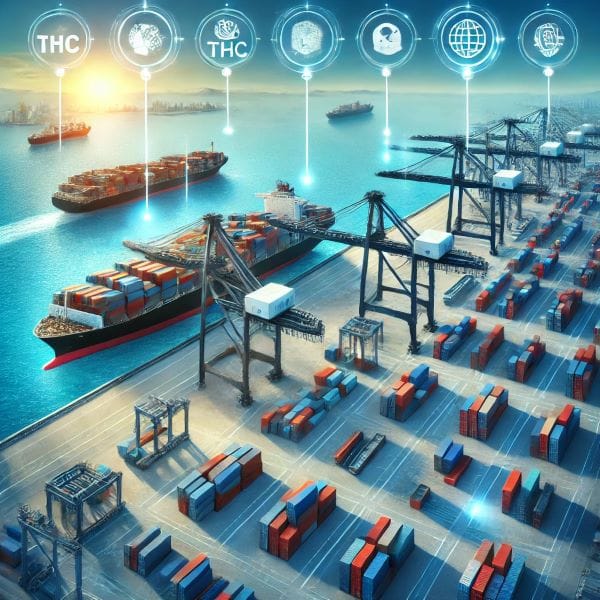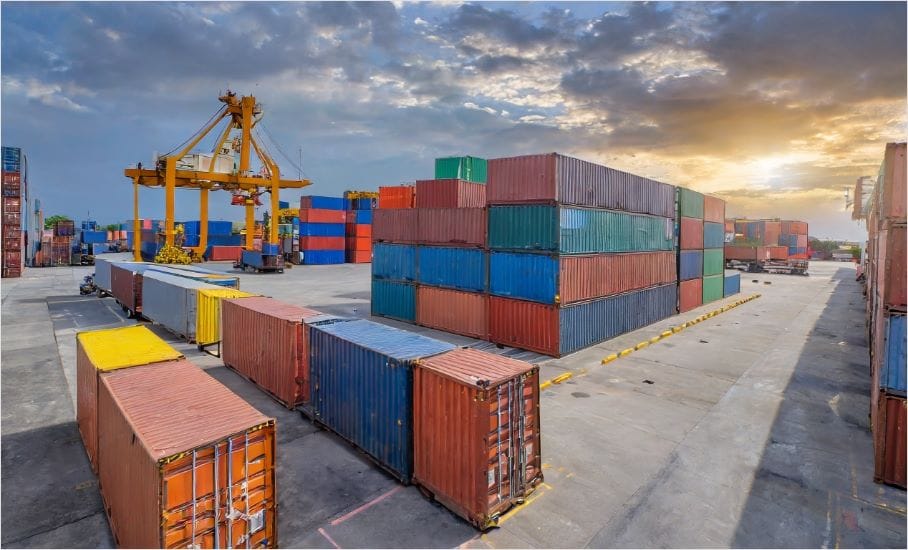In international trade, cost has always been a concern for businesses and individuals. Understanding its various costs can help to better formulate transportation plans. THC is the inevitable cost of Sea Freight to the port. This article will introduce it in detail.
You may also be interested in:The 11 Common International Trade Terms

What is THC
THC (Terminal Handling Charge) is the fee charged by the port or terminal operator to the shipper or freight forwarder during the import and export process of goods, which is used to cover the various operating costs of the goods during the period of the terminal.
The costs related to container loading and unloading and terminal handling in international shipping cover a series of services such as terminal facility use, mechanical operation, container handling, stacking and transshipment.
The Role of THC in International Trade
In international trade, THC plays a vital role, which is mainly reflected in the following aspects:
- Promote the smooth flow of goods: By paying THC, the goods can smoothly complete the loading and unloading operations from the ship to the terminal and then to the container yard.
- Ensure port operations: These fees are used for the construction of port infrastructure, equipment renewal, employee salaries, etc., to ensure that the port can operate efficiently.
- Improve logistics efficiency: THC payment can ensure the rapid processing of goods, reduce stagnation time, improve the turnover efficiency of ships, and thus speed up the entire logistics chain.
THC Fee Structure
THC fee structure is relatively complex and involves the following aspects:
- Container handling: handling costs of unloading containers from ships and transferring them to the yard, or loading them onto the next ship.
- Storage costs: During terminal operations, containers may need to be temporarily stored in designated areas for storage costs.
- Transshipment costs: In some cases, containers need to be transferred between multiple terminals, and may even involve transit at different ports, which will incur additional costs.
- Facility usage fees: Terminal operations involve port infrastructure, such as container yards, loading and unloading equipment, etc., and fees are required for the use of these facilities.
How to Calculate Terminal Operation Fees
THC specific charges are calculated based on factors such as container type, weight, destination port, port policy, etc.
Different ports
THC fees vary greatly from port to port, and charges may vary due to differences in operating efficiency, labor costs, etc. Some major ports (such as Shanghai and Los Angeles) may charge higher THC fees.
Container specifications
THC for 20-foot container: generally between $50 and $100.
THC for 40-foot container: generally between $100 and $200.
Cargo types
The handling complexity of ordinary cargo and special cargo such as dangerous goods and frozen goods varies, and the fees will also vary.

The Impact of THC in Sea Shipping
In international sea Freight, the role of THC cannot be underestimated. Its impact on the entire transportation process is reflected in the following aspects:
- Affecting transportation time: THC affects the loading and unloading and transshipment efficiency of goods. If the terminal operation is not smooth or delayed, the transportation time may be greatly extended.
- Affecting logistics costs: THC is an important cost in the sea transportation process. Its changes may directly affect the overall transportation cost. Shippers and consignees need to understand and calculate THC in advance to avoid budget overruns due to cost changes.
- Affecting the choice of transportation mode: In some cases, companies will decide to choose different ports or transportation methods based on the level of THC costs.
Ubest Shipping: Transparent THC Pricing
THC is a hidden cost in international transportation. In addition to THC, there are other hidden costs, such as port surcharges, loading and unloading fees, transshipment fees, etc. These costs are often difficult to predict during the transportation of goods. Choosing a suitable freight forwarder will help you develop a logistics plan and save budget.
THC is an important component of international shipping. International trade companies’ understanding and reasonable planning of THC costs will help optimize logistics costs and improve competitiveness.
